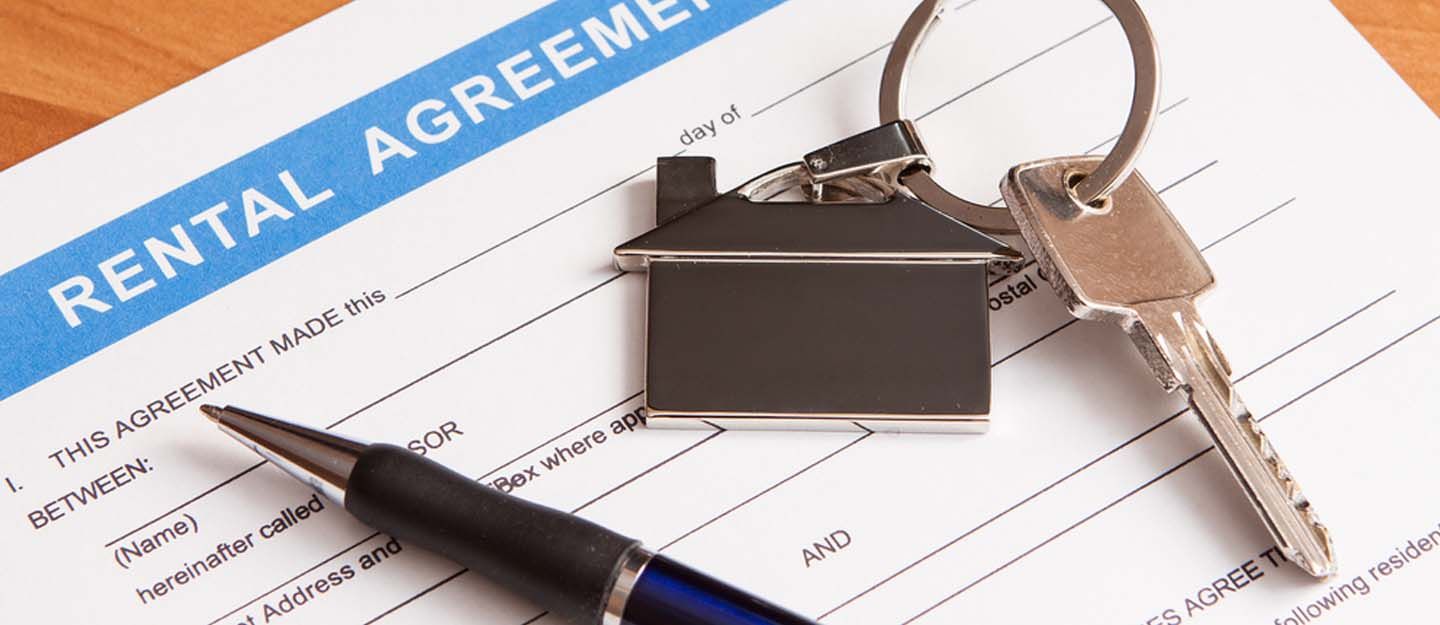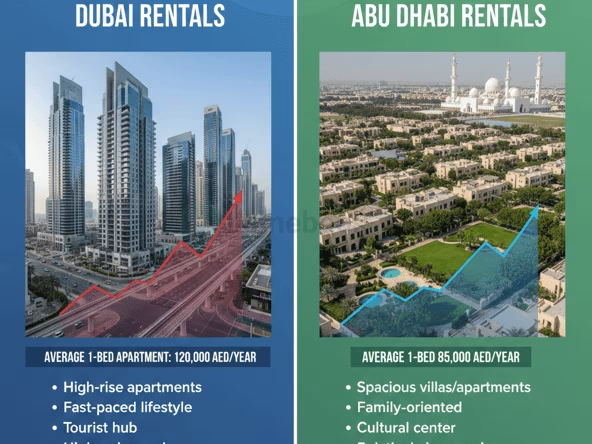More than 10,000 short-term rental properties hit Dubai’s market each year. Short-term rental agreements play a vital part in Dubai’s housing scene. Business travelers, tourists and people between homes will benefit from a clear understanding of these agreements to avoid complications.
Getting a handle on temporary rental contracts in Dubai is simpler than you might think. This piece helps you understand everything about securing and managing a short-term rental in Dubai – from DTCM regulations to flexible rental agreements. You’ll discover the legal requirements, ways to negotiate better deals, and steps to protect your interests during your rental journey.
In this Dubai short-term lease guide, we’ll cover the ins and outs of this type of contracts, What you’ll learn:
- The different types of short-term rental properties available
- Key contract elements and legal requirements
- Negotiation strategies for better terms
- Your rights as a tenant
- Dispute resolution procedures
Understanding Dubai’s Short-Term Rental Landscape
Short-term rental contracts are agreements designed for housing needs lasting anywhere between a week to six months. These leases are popular for their flexible rental agreements in Dubai, providing tenants with a hassle-free way to secure accommodations without long-term commitments. This market offers a variety of properties that cater to different needs. You’ll find these options while learning about accommodations in the city:
- Fully furnished apartments and studios
- Holiday homes in gated communities
- Commercial villas on highways
- Residential villas (in communities with minimum 4 units)

The market’s performance has been remarkable. Dubai welcomed nearly 18 million international overnight visitors in 2023, which shows a 20% increase from the previous year. Seasonal patterns will shape your rental experience. The winter months from November to March are the peak season. Occupancy rates typically reach 80-90% during this time. You should expect daily rates to double compared to off-season prices.
The legal framework is a vital part of your rental trip. The Department of Tourism and Commerce Marketing (DTCM) manages short-term rentals. Property owners must register and get approval before listing their properties. The annual permit costs property owners AED 1,520, and this often affects the rental prices. Your stay includes the Tourism Dirham fee. This fee depends on the number of rooms and nights, with different rates for standard and deluxe classifications.
Dubai’s short-term rental market shows reliable performance. Properties maintain an average occupancy rate of 69% throughout the year. The average daily rate stands at AED 598. These numbers prove that Dubai offers dependable accommodation options all year round.
Read more: Top Areas to Rent Bed space in Al Barsha
Why Choose a Short-Term Lease in Dubai?
Choosing a short-term rental in Dubai offers many advantages, particularly for expats, tourists, and business travelers who value flexibility.
Flexibility for Expats, Tourists, and Business Travelers
Short-term leases cater to people on the move. For tourists visiting Dubai’s iconic landmarks or professionals working on short projects, these rentals eliminate the need for lengthy paperwork and long-term commitments.
Perfect for Exploring Dubai Without Long-Term Commitments
New to Dubai? Short-term leasing options in Dubai allow you to explore neighborhoods like Downtown, JBR, or Dubai Marina before settling down permanently. This approach ensures you find the perfect area that matches your lifestyle.
Adapting to a Dynamic Lifestyle
Dubai’s fast-paced environment demands agility. Short-term rentals give tenants the freedom to move quickly, whether they’re relocating for work or adjusting to changing circumstances.
Essential Elements of a Short-Term Rental Agreement
A short-term rental agreement needs several significant components to protect both you and your landlord. Let’s get into the vital elements that safeguard everyone’s interests.
Must-have contract clauses
Your rental agreement should spell out these fundamental elements:
- Rental duration and exact dates
- Total rent amount and payment schedule
- Security deposit terms
- Maintenance responsibilities
- Utility arrangements
- Early termination conditions
Payment terms and security deposits
Unfurnished properties need a security deposit of 5% of the annual rent, while furnished properties need 10%. Your deposit covers potential damages, unpaid utilities, or lost keys. You’ll get your deposit back within 30 days after your tenancy ends, unless there are deductions for damages beyond normal wear and tear.
Maintenance and utility responsibilities
A smooth tenancy depends on clear responsibilities between landlord and tenant. Your landlord takes care of major maintenance that affects the property’s core functionality, including electrical systems, plumbing, and air conditioning. You’ll handle minor maintenance tasks that cost less than AED 1,000.
Most short-term rentals include DEWA (electricity and water) costs in the rental price. Stays longer than a month might require you to pay utilities directly. Some properties use smart monitoring tools to track actual consumption and ensure fair billing.

Negotiating Favorable Rental Terms
Becoming skilled at negotiation will greatly affect your rental terms in Dubai’s competitive market. Getting good rates depends on timing. Landlords show more flexibility during:
- Summer months when expat movement is lower
- December, before the new year
- Off-peak seasons with lower occupancy rates
- Mid-week periods for discussions
Price negotiation strategies
Your negotiating power gets stronger with upfront payments. Landlords prefer fewer cheques and might reduce rates for single-cheque payments. Think about offering a two-year contract at fixed prices to stay protected against market fluctuations.
Navigating Digital Booking Platforms : Homebook
Securing your ideal accommodation in Dubai starts with understanding the digital landscape of booking platforms. Homebook platform offers unique advantages and features that cater to different needs and preferences.
Flexibility in contract duration
Dubai’s short-term rentals give you amazing flexibility. You can rent from daily stays to six-month agreements. Property owners let you extend your stay if needed. Some even offer monthly payment options instead of asking for the full amount upfront.
Adding special conditions and amenities
Simple terms are just the start – you can negotiate for great add-ons. You might discuss free parking spaces, storage units, or gym memberships as part of your agreement. Some tenants get air conditioning fees or internet packages included, which saves money over the contract period.
Note that all negotiated terms need written documentation that follows DTCM regulations. Knowing how to show financial stability and keep positive communication throughout the process will boost your chances of successful negotiations.
Key Features of Short-Term Rental Agreements in Dubai
Before signing a short-term lease agreement in Dubai, understanding its features will help you maximize the benefits.
Lease Durations: From Weekly to Monthly Options
Flexibility is key in short-term rentals. Leases can range from a week-long stay to several months, depending on your needs. This versatility is perfect for visitors on extended vacations or professionals with temporary assignments.
What’s Included in Short-Term Contracts? Utilities, Furnishings, and More
One major perk of short-term rentals is the all-inclusive nature of these agreements. Most contracts cover:
- Furnishings: Fully equipped apartments with beds, sofas, kitchenware, and more.
- Utilities: Electricity, water, and sometimes internet are often bundled into the rent.
- Maintenance Services: Basic upkeep is typically included, ensuring a hassle-free stay.
Payment Terms and Upfront Costs Explained
Unlike long-term contracts that require multiple checks or installments, short-term rental agreements in Dubai usually demand upfront payment for the lease duration. A refundable security deposit may also be required.
Read more: The Affordable and Best Areas to Rent in Dubai Based on Salary Ranges

Best Options for Short-Term Rentals in Dubai
Dubai offers flexible Room fore rent in Dubai options for both tourists and expats. Whether you’re here for a few weeks or months, you’ll find affordable, fully furnished accommodations across the city. These options allow you to experience Dubai without a long-term commitment, perfect for anyone looking for short-term living solutions.
Popular Areas for Short-Term Rentals: Downtown, Marina, and JBR
When searching for a room or bed space for rent in Dubai, consider areas like Downtown, Dubai Marina, and Jumeirah Beach Residence (JBR). These neighborhoods offer a variety of short-term rental options, from modern apartments to shared spaces, placing you close to major attractions, business hubs, and stunning views.
Protecting Your Rights and Interests
A secure tenancy in Dubai’s evolving rental market depends on your knowledge of legal rights and available safeguards. You need to understand these protections to safeguard your interests in a short-term rental agreement.
Tenant rights under Dubai law
Dubai law grants you access to a habitable property, prompt repairs, and privacy. The Dubai Tourism and Commerce Marketing (DTCM) monitors these rights and makes sure property owners meet high health and safety standards. You must receive detailed instructions about terms and conditions before you move in.
Dispute resolution mechanisms
The Rental Dispute Settlement Center (RDC) helps you resolve any conflicts. You’ll need to pay 3.5% of your annual rent to file a complaint (minimum AED 500, maximum AED 20,000). This process works in stages:
- Mediators try to resolve the issue first
- Formal hearings take place if mediation doesn’t work
- You can appeal within 15 days if claims exceed AED 330,000
Insurance and liability considerations
Your protection should include complete insurance coverage. You need these essential types:
- Property insurance that covers structural damage
- Contents insurance to protect furnishings and appliances
- Public liability coverage if guests get injured
- Protection against accidental damage
It’s worth mentioning that you should keep records of all landlord communications and maintain copies of important documents, including maintenance requests and payment records.
Challenges of Short-Term Rentals and How to Overcome Them
Short-term rentals come with unique challenges, but they can be mitigated with proper planning.
Balancing Cost and Comfort
While short-term leases may be pricier than long-term options, focusing on essential features like location and amenities can help balance costs.
Dealing with Limited Availability in Prime Locations
High-demand areas like Downtown and Marina can have limited availability. Start your search early and use platforms like Homebook.ae to secure your spot.
Always review the contract thoroughly and use registered platforms to ensure your rights are protected.

Conclusion
Understanding short-term rental agreements in Dubai might seem daunting at first, but you can handle them with confidence once you know the basics. Your success relies on grasping market dynamics, key contract elements, and tenant rights.
Dubai’s strong rental framework protects tenants through DTCM regulations and dispute resolution systems. The right negotiation approach and proper documentation, along with insurance coverage, will protect your interests during your stay.
Timing is a vital factor that affects both rental rates and tenant rights. Peak seasons naturally bring higher prices and more competition, yet they showcase the market’s stability. You should keep records of all communications, maintain insurance coverage, and know your rights under Dubai’s law.
The city’s rental market becomes both available and rewarding when you blend market insights with detailed contract reviews and protection measures. Your rental experience will be smoother when you start with proper preparation.
FAQ – Everything You Need to Know About Short-Term Rental Contracts in Dubai
Common questions about Dubai’s short-term rentals answered:
Are short-term rentals legally allowed in Dubai?
Dubai allows short-term rentals, but property owners must get a holiday home permit from Dubai’s Department of Economy and Tourism (DET).
Are short-term rentals more expensive than long-term rentals?
Yes, they often cost more due to the flexibility and added conveniences they provide.
What areas in Dubai are best for short-term housing?
Popular areas include Downtown Dubai, Dubai Marina, and Jumeirah Beach Residence.
Can I extend a short-term lease to a long-term one?
Yes, but this depends on the lessor’s agreement and terms.
Do I need specific documentation to rent?
You just need to show your Emirates ID document, that will do the work for you.



